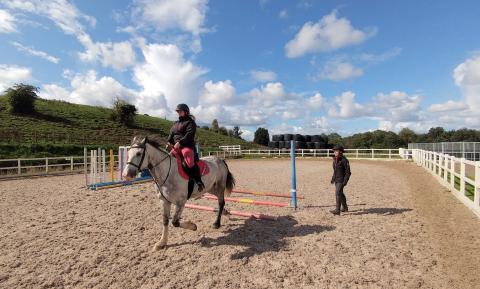Riding Centre Managers oversee the running of horse riding centres which offer riding and trekking activities and holidays. Some managers also own the venues too.
They are responsible for the organisation, operation and marketing of the centre, and for supervising the care of the horses. The job varies depending on the employer but main tasks include:
- Balance the organisation of the riding centre and welfare and care of the animals with marketing and operation
- Liaise with local tour operators to enhance business opportunities
- Ordering of all supplies including horse food, supplements etc.
- Ensuring that the business meets health and safety requirements
- Planning and organising all business aspects of the centre, including marketing, administration and finances
- Overseeing the management of the horses and ensuring the treks are suitably planned
- Arranging daily routines for horse care and stable management
- Handling queries, problems and complaints
- Recruiting and managing staff, organising work rotas and arranging training.
Working Conditions
Riding Centre Managers usually work long hours, including evenings and weekends. Actual hours vary with the type and size of the centre. They will spend some time working indoors in an office but also work outdoors in all weather conditions.
Trekking centres are situated throughout the UK but are more common in rural parts of the country and in coastal areas.
Salary
Some employers provide accommodation, food, free stabling for their employees’ horses and riding instruction, so individual salaries may vary.
£16,000
£20,000
Getting started
People usually start in related jobs, such as an Assistant Ride Leader, Trainee Instructor, Level 1 Coach or Groom, and work their way up to a management role.
Qualifications are often required, as well as a real interest and enthusiasm for working with horses.
If you are working in the equestrian tourism industry, you can complete equestrian tourism qualifications. These are especially suitable if you take out treks, trail rides or hacks for more experienced riders.
What experienced workers can do
- Leadership and decision making
- A good riding ability
- Thorough knowledge and understanding of stable management
- Customer-care
- Business administration and management skills and or qualifications
- Sound knowledge of horse breeds which are suitable for recreational riding
- Maintain appropriate Personal Protective Equipment
- Work to relevant animal health and welfare legislations and codes of practice
- Knowledge, experience and training in equestrian work.
- Maintenance of grasslands for equines
- Map reading skills for planning and taking rides.
Personal qualities you should have
- Good communication skills
- Genuine interest in horses and their welfare
- Flexible about working hours and location
- Self-motivated
- Willing to undertake routine and practical tasks.
Next steps
Riding Centre Managers may also have the opportunity to expand their skills and qualifications. This would depend on the size and type of equestrian establishment they work in.
Other roles could include:
- Equine Tourism Examiner
- Instructor or Coach
- Yard Manager
- Horse Transporter
- Business Yard Manager.
Useful links
Association of British Riding Schools
